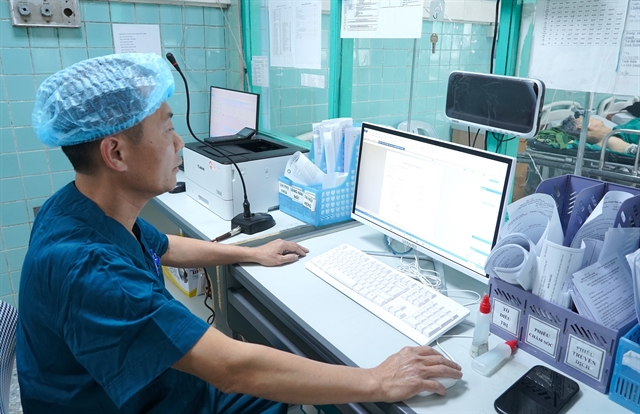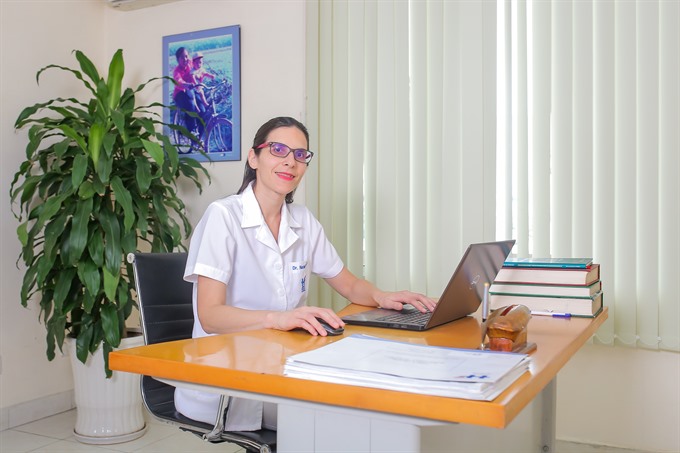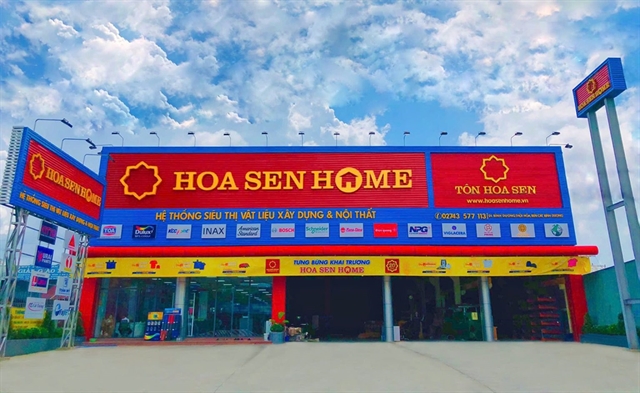 Life & Style
Life & Style

Air pollution is a growing problem in Hà Nội. According to GreenID, during the first trimester of 2018, the average level of air pollution was four times higher than the acceptable levels defined by the WHO. Find out what air pollution is, how it affects your health and how you can protect yourself.
 |
| Dr. Delphine Natali.— Hanoi French Hospital |
By Dr. Delphine Natali*
Air pollution is a growing problem in Hà Nội. According to GreenID, during the first trimester of 2018, the average level of air pollution was four times higher than the acceptable levels defined by the WHO.
Find out what air pollution is, how it affects your health and how you can protect yourself.
What is air pollution?
Air is invisible but vital for animals and humans to breathe and plants to grow. Air is a mixture of gases and consists of mainly nitrogen (N2) with 78 per cent and oxygen (O2) with 21 per cent. Air also contains water vapor.
Sources of air pollution can be natural (for example, volcanic activity) or due to human activity (such as industry, road traffic, agriculture and residential emission.).
There are numerous air pollutants. The most dangerous are sulphur dioxide (SO2), nitrogen dioxide (NO2), particulate matter (PM), carbon monoxyde (CO) and ozone (O3).
The smaller the PM are, the deeper they can penetrate into your body: PM10 (size <10μm) penetrates the nose and throat and PM2.5 (<2,5μm) can reach your bronchi. PM1 (<1μm) and PM0.1 (<0.1μm) are able to reach your blood! For comparison, one human hair measures 50 to 70μm.
To better know the amount of pollution in the air you are breathing, you can use the internet or mobile apps to follow the Air Quality Index which measures the five most important pollutants and gives you advice for protecting yourself depending on five levels of health hazard.
What are the effects of air pollution on your health?
During air pollution highs, there are significantly more people complaining about cough or noisy breathing and there are more respiratory tract infections in children. People living with chronic respiratory or cardiac disease have a higher risk of experiencing asthma attacks, heart attacks or even stroke.
Breathing polluted air every day is dangerous during pregnancy and may lead to premature birth and lower birth weight. Children may have slower lung development and may develop asthma and allergies. Adults may develop chronic bronchitis and also lung cancer.
You should see your doctor if you experience any abnormal symptoms, such as persistent cough, noisy breathing or frequent shortness of breath.
How can you protect yourself against the effects of air pollution?
Follow the instructions based on the Air Quality Index level to adapt your daily routine. Make sure you regularly ventilate your home and office, to avoid indoor concentration of pollutants (except in the case of ozone pollution).
Fragile persons (including pregnant women, children and people suffering from chronic heart or respiratory disease) should limit their outdoor activities and avoid dense traffic areas, especially during rush hour. Limit the amount of time your child spends playing outdoors if the air quality is unhealthy and if possible inform school authorities to restrict school-related outdoor activities.
To limit the health effects of chronic exposure to air pollution, you should keep your home and office well aerated, avoid smoking in your home, don’t burn trash and exercise regularly! When pollution levels are high, exercise in a gym or use an exercise machine at home.
Face masks type FFP3 can protect you from bigger PMs but do not protect you against the smaller ones (PM0.1 and PM1) or against exhaust fumes.
Make an appointment with your doctor in case of recurrent respiratory problems. If you experience breathing difficulties or chest pain, see your doctor immediately. —
*Dr. Delphine Natali is a chest physician from France. Together with her colleague Dr. Trần Phạm Hải, they bring state of the art knowledge and treatment for airway conditions and allergies to our customer. If you have any questions or want to book an appointment with our doctors, please contact us at our phone number 84 – 24.3577.1100, or email us at contact@hfh.com.vn.




